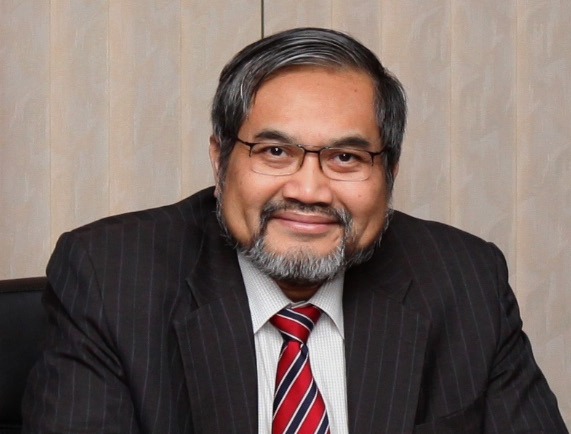KUALA LUMPUR, Jan 13 — Malaysia will lurch from lockdown to lockdown if the Ministry of Health (MOH) doesn’t implement a clear and improved Covid-19 public health strategy, a public health expert said.
Today is the first day of a two-week Movement Control Order (MCO) in the capital city and five states that limits people to 10km travel from their homes, while interstate travel has been banned nationwide.
“If the government wants to implement a MCO, it is compulsory for the government to give detailed strategies to control the transmission during and after the MCO,” former Health deputy director-general (public health) Dr Lokman Hakim Sulaiman told CodeBlue.
“If they continue with ‘business as usual’, we will risk going back to MCO next time because it is obvious the current strategy doesn’t work.”
For example, there is no substantial increase of public health frontliners, which is key in Covid-19 case investigation, contact tracing, community testing, managing quarantine, health education and promotion, enforcement, improving access to diagnosis, rapid turnaround time for diagnosis etc, Dr Lokman said.
“Do not think MCO is the most effective vaccine. It is this stance that brought us to the current situation of failing to understand the true purpose of MCO,” the public health expert stressed.
The International Medical University pro-vice chancellor (research) added that if repeated MCOs happen, it will damage the country’s economy.
The government has announced an MCO in Labuan, Kuala Lumpur, Putrajaya, Selangor, Melaka, Sabah, Johor, and Penang for two weeks from today until January 26. The first MCO implemented nationwide in Malaysia starting from March 2020 lasted for seven weeks and the government lost RM300 million each day during the lockdown.
“Accept the fact that transmission occurred because we failed to detect and isolate early virus carriers. We failed in the key principles in management of the disease.”
Dr Lokman Hakim Sulaiman, International Medical University pro-vice chancellor (research)
“True, we never managed pandemics, but that is not the reason. We have extensive experience in controlling infectious diseases,” Dr Lokman said.
“Isn’t this a pandemic of infectious diseases? What is the difference between pandemic and non-pandemic infectious disease control principles? Nothing except intensity only! The proof is look at neighbouring countries in our north and south.”
Singapore, which initially recorded a higher number of positive Covid-19 cases as compared to Malaysia in the beginning of the pandemic last year, managed to bring down their daily tally to almost single digits after the country screened all their foreign workers. Singapore has even started vaccinating their health care workers with the Pfizer-BioNTech vaccine since last December.
After almost a year into the pandemic, only yesterday Health Minister Dr Adham Baba announced that the government will launch a national level pandemic strategic plan using a comprehensive approach for the whole country soon.
Only Six To 12 Weeks’ MCO Will Be Effective: Dr Awang Bulgiba

Public health expert and epidemiologist from University Malaya Dr Awang Bulgiba told Berita Harian Monday that an effective MCO that manages to successfully bring down Covid-19 cases to a safe level is between six and 12 weeks.
“The MCO implementation is needed, but two weeks isn’t enough because the incubation period of the virus is between 10 to 14 days,” Dr Awang was quoted saying.
“This means that cases announced today maybe have been infected 14 days ago.”
Dr Awang also pointed out that a two-week lockdown isn’t long enough because the Covid-19 daily test positivity rate has reached about eight per cent, above the five per cent recommended by the World Health Organization (WHO). According to the US-based Johns Hopkins Coronavirus Resource Center, Malaysia’s daily test positivity rate (seven-day moving average) is 8.13 per cent.
A high positivity rate simply means there are more Covid-19 cases undetected in the community and more tests should be run, which the government has not done despite calls from Members of Parliament and health experts since the second wave of the Malaysian epidemic.
“During the first MCO, the rate is only between one to two per cent, which means only one or two individuals tested positive out of the 100 people screened, compared to the eight people now,” Dr Awang said.
“This suggests that the spread of the virus in the community is much higher than detected. The number of positive individuals is now limited to the number of tests, meaning the more tests are conducted, the higher the number of positive cases detected.”
An analysis of Covid-19 cases made on January 8 this year by consultant paediatrician Dr Amar Singh HSS found that many states have a high proportion of sporadic cases, including Kedah, Kuala Lumpur, and Johor.
MCO Will Help Reduce Covid-19 Cases To A Manageable Level: Dr Lee

Former Health deputy director-general Dr Christopher Lee told CodeBlue that the MCO will help in the “hot” states by bringing down the number of Covid-19 cases to a more manageable level.
“It will buy time for MOH and the other ministries to strengthen their policies and responses, including infrastructure and capabilities, especially in contact tracing and isolation for the post MCO period,” said Dr Lee.
Prime Minister Muhyiddin Yassin on Monday told the public that the health care system is under tremendous pressure, even at “breaking point”, now more than any other time since the start of the pandemic. Muhyiddin pointed out that the overall bed occupancy rate in all 15 Covid-19 hospitals is already above 70 per cent.
The intensive care unit (ICU) occupancy rate in the University Malaya Medical Centre (UMMC) and Kuala Lumpur Hospital is now at 100 per cent, while in Malaysia’s centre of infectious diseases, Sungai Buloh Hospital, the ICU occupancy rate is 83 per cent.
MOH reported an all-time 24-hour high of 3,309 new Covid-19 cases yesterday, with an average of 2,959 daily coronavirus infections over the past seven days.
Dr Lee added that the country’s economy will never really reopen or recover well unless the daily number of Covid-19 cases is more manageable.
He said that the general public and the private and public sectors can play a huge part by complying with guidelines and monitoring their conduct, especially for the economic sectors that will still be opened during the MCO, otherwise it will be wasted.
“It’s crucial that we get our act together (all sectors, our leaders, MOH, other ministries, government agencies, and the private sector). “
“We all have to learn from the last MCO and prepare for the post-MCO period. Otherwise, it’ll be living from one MCO to another,” the infectious disease physician said.








